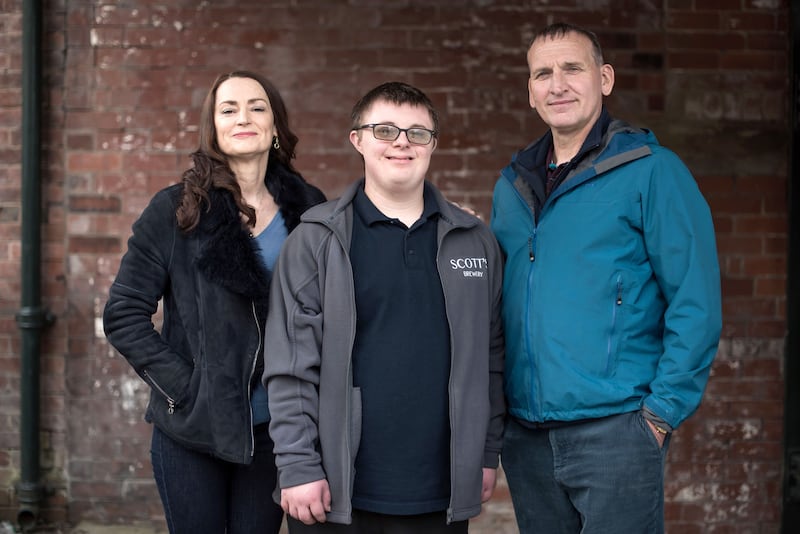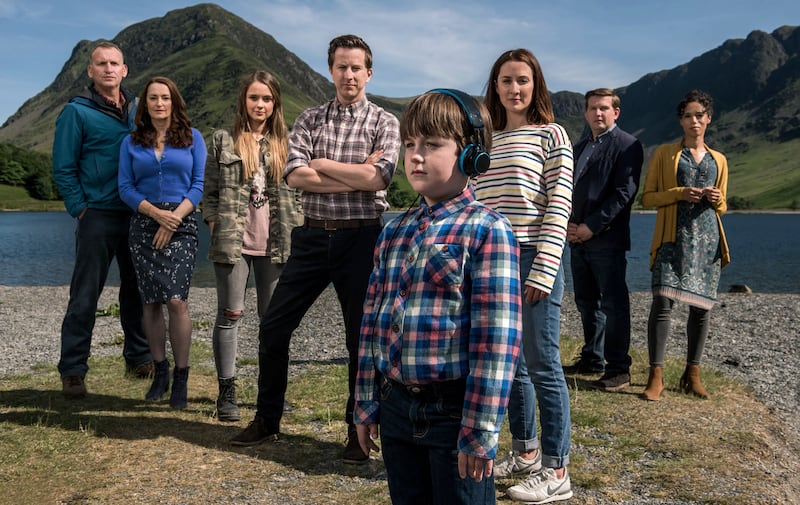The inclusion of a breast cancer storyline in The A Word will help to normalise and raise awareness of the disease, one of the programme’s stars has said.
In Tuesday’s episode of the BBC One family drama about a little boy with autism, Louise Wilson – played by Pooky Quesnel – reveals to her former partner Maurice Scott (Christopher Eccleston) that she has breast cancer.
The programme’s writer Peter Bowker worked with charitable organisation Breast Cancer Care on the storyline, and Quesnel has praised his deft touch in bringing the topic to the small screen, which she hopes will encourage people to check themselves for signs of the disease.
On the importance of TV programmes addressing health issues, Quesnel told the Press Association: “It’s all about fear, and with the autism and other learning difficulties, it’s all about fear because it’s unfamiliar to people.

“People don’t know how to react to it, they become a bit frightened and step back, and then you have defensive behaviour.
“And it’s the same with cancer – if you have no experience of it, it’s frightening and you want to push it away and not think about it.
“The more you see it, the more it becomes normalised, and the more it is treated with some humour – but still with respect, like Pete manages to do – then that can only help people.”
She said she thinks people often spend their lives “running away” from the thought of cancer, thinking it will “never happen” to them.
Quesnel added: “But putting it in drama just helps to raise awareness and is not this great thing that you’ve got to run away from.
“It’s something that happens to human beings that they do get through.”
She added that Bowker tried to find a way “that is going to open up emotionally challenging scenarios” for single mother Louise, her son Ralph – who has Down’s syndrome – and Maurice.
“She’s gone into shock mode as she tries to control the situation, which is why she didn’t want Ralph to apply for the job at Maurice’s brewery,” Quesnel said.

“She doesn’t want anybody to know, and she thinks if Ralph goes there, then Maurice will find out. But of course it all gets blurred and in the end she feels she has to tell Maurice, because he’s going to find out anyway.”
Quesnel has urged viewers to familiarise themselves with their own breasts in order to catch the early signs of breast cancer that go beyond just the discovery of a lump.
Breast Cancer Care advises people to look out for the key signs: a change in the size or shape of the breast, a lump or area that feels thicker than the rest of the breast, a change in skin texture such as dimpling, a redness or rash on the skin, an inverted nipple, a discharge-like liquid coming from the nipple, pain in the breast or armpit and a swelling in the armpit or around the collarbone.
Breast cancer is the most common cancer in the UK, and one person is diagnosed every 10 minutes.
Samia al Qadhi, chief executive of Breast Cancer Care, said: “A diagnosis of breast cancer changes everything and with one person diagnosed every 10 minutes in the UK, it is wonderful The A Word will be portraying a reality that so many people face.
“We were delighted to consult with them on the script to help ensure Louise’s experience in the series is true to life.
If you find yourself struggling with the impact of breast cancer – we're here for you https://t.co/S0vVlQcHRA pic.twitter.com/n62QlL7epo
— Breast Cancer Care (@BCCare) November 11, 2017
“It’s also a reminder of the importance of getting to know your breasts, as an early diagnosis can be crucial in providing more effective treatment.
“There’s no right or wrong way to check, so it’s about looking and feeling your breasts regularly so any unusual changes can be spotted quickly. While most breast changes are likely to be normal, if you notice any warning signs, get them checked out with your GP.”
Breast Cancer Care offers care, support and information at www.breastcancercare.org.uk, or on 0808 800 6000.







